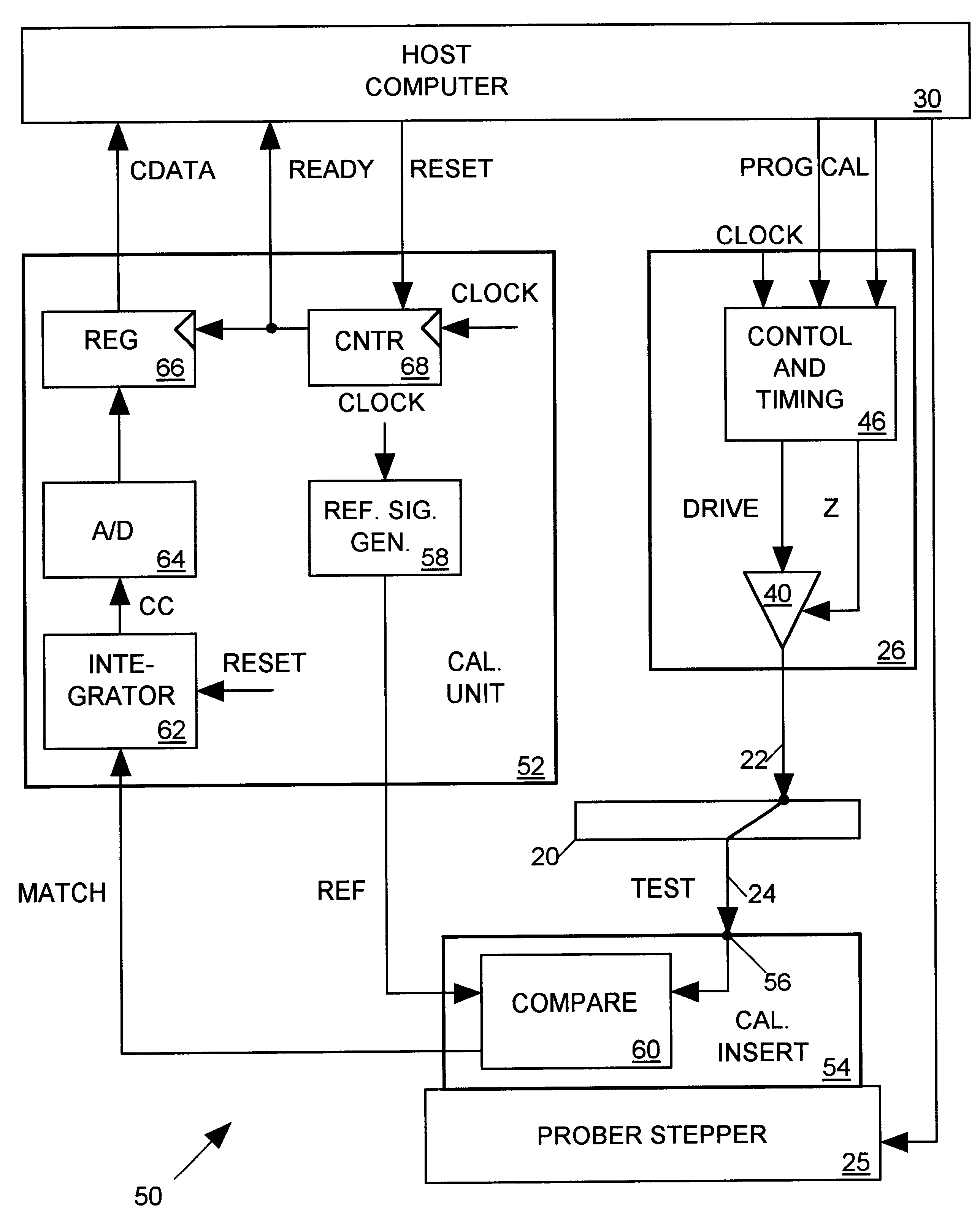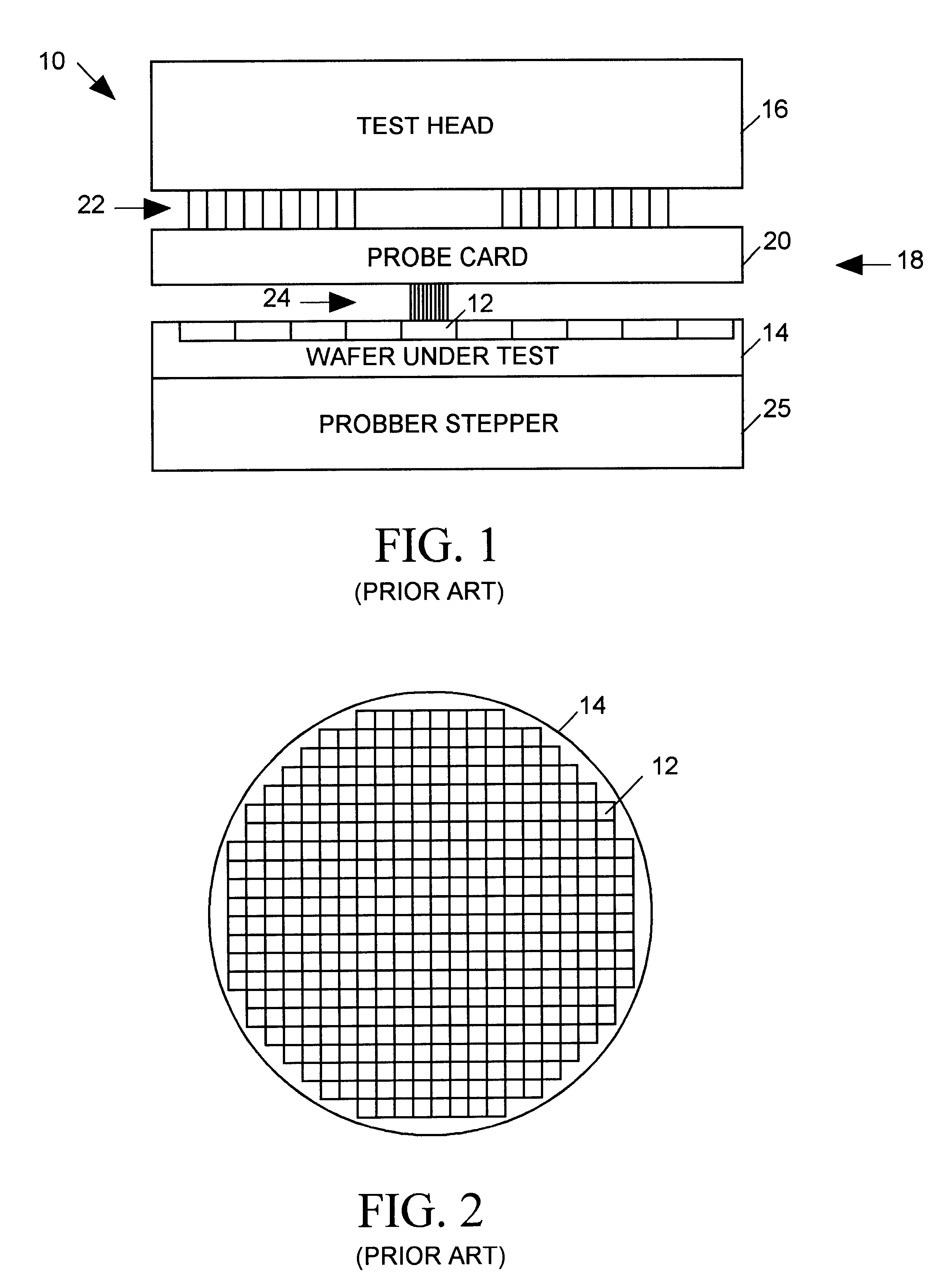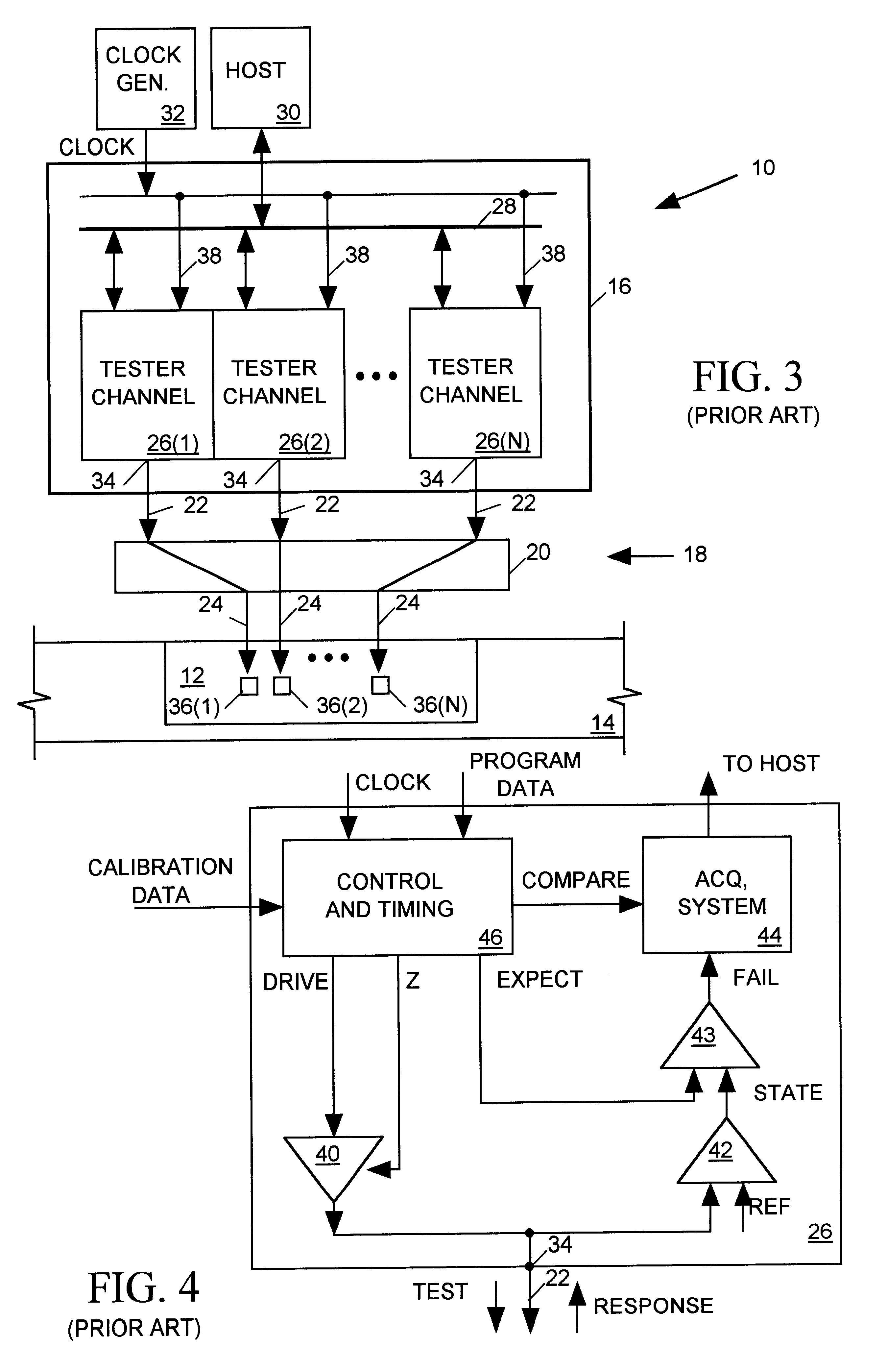Cross-correlation timing calibration for wafer-level IC tester interconnect systems
a technology of interconnection system and cross-correlation timing, which is applied in the field of system for calibrating signal timing of ic wafer tester, can solve the problems of delay in signal path transmission, slightly different transmission times or rates, and adversely affecting channel ability
- Summary
- Abstract
- Description
- Claims
- Application Information
AI Technical Summary
Benefits of technology
Problems solved by technology
Method used
Image
Examples
Embodiment Construction
)
The present invention relates to a method and apparatus for accurately calibrating the event timing system of an integrated circuit (IC) tester. We will first describe the event timing system employed by a typical prior art IC tester and then describe how the present invention calibrates that timing system.
FIG. 1 is a simplified sectional elevation view of a typical prior art IC tester 10 designed to test an IC 12 while still in the form of a die on a semiconductor wafer 14. FIG. 2 is a plan view of a wafer 14 implementing a large number of ICs 12. Tester 10 includes "test head" 16, a chassis containing circuit boards implementing a set of tester channels. Each tester channel is capable of supplying a test signal input to a bond pad or other test point of IC 12 and / or of monitoring an IC output signal produced at that bond pad to determine its state. Tester 10 also includes an interconnect system 18 linking each tester channel within test head 16 to an appropriate bond pad on the s...
PUM
 Login to View More
Login to View More Abstract
Description
Claims
Application Information
 Login to View More
Login to View More - R&D
- Intellectual Property
- Life Sciences
- Materials
- Tech Scout
- Unparalleled Data Quality
- Higher Quality Content
- 60% Fewer Hallucinations
Browse by: Latest US Patents, China's latest patents, Technical Efficacy Thesaurus, Application Domain, Technology Topic, Popular Technical Reports.
© 2025 PatSnap. All rights reserved.Legal|Privacy policy|Modern Slavery Act Transparency Statement|Sitemap|About US| Contact US: help@patsnap.com



